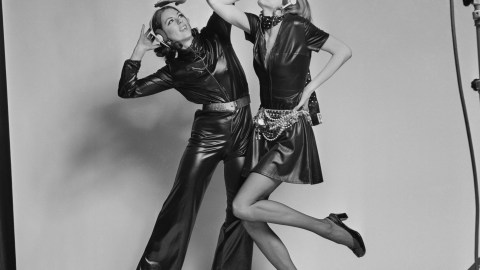How the music we love drives our survival

Photo credit: McKeown / Daily Express / Hulton Archive / Getty Images
The various milestones of my life are best explained by the soundtrack I was rocking to at the time. In fact, my growth as a person can be documented in great detail by exactly what artist resonated with me at which juncture. Joni Mitchell’s and Bob Dylan’s thoughtful lyrics in college, recently the meandering strains of John Coltrane’s saxophone, the pop fun of Tennis, and the aching beauty of Sufjan Stevens, or the soothing comfort of the Beatles or Barbra Streisand, which immediately recall my childhood, each bringing up an emotion and saying, “This is who I am right now.”
Science has a number of different takes on what attracts us to certain melodies and chords, and why we need music at all. A 2015 post on BBC attempts to answer some of these questions, and explains that singing and dancing in groups gives us a strong evolutionary advantage.
According to neuroscience, the article says, dancing can blur our sense of separateness. This may be why when I’m seeing a live concert, my brain feels like it’s firing off billions of dopamine chemicals (because it is). There is something about a group experience, a we’re-all-in-this-together feeling, that makes me feel less like an individual person and more like part of a community — like there is something bigger than myself.
Apparently listening to a song that is “chill-inducing” can lead to us to acting more altruistically, also, which makes sense. If music or dancing makes us feel a part of a bigger group, we want to help that group or tribe.
On a monetary level, that may be why we all swoon at the Sarah McLachlan “Angel” puppy commercials, or donate to charity concerts. But in a bigger way, it could indicate why music that addresses our cultural problems resonates as much as it does, from Buffalo Springfield’s “For What it’s Worth” and Marvin Gaye’s “What’s Going On” to the more recent social commentary of Kendrick Lamar.
We feel close to artists who talk about the world we live in, because through their music and lyrics we connect to the very group or society they are observing; they show us that we are all a part of the same thing.
Feeling connected, part of a tribe, and like we are contributing to a tribe, are basic and primal human emotions that are absolutely necessary to our survival. To quote an oft-covered Rihanna song, “Please don’t stop the music.”





